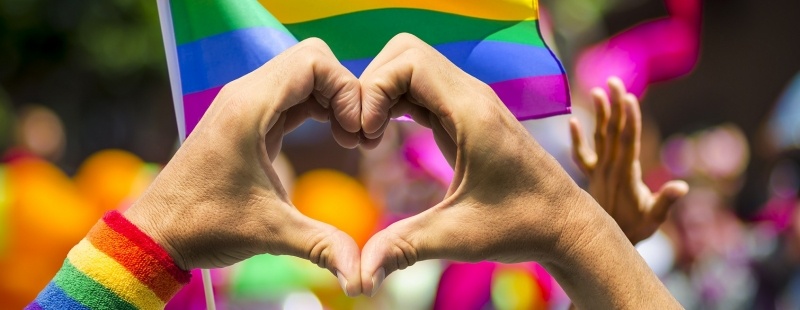June is a month celebrated around the world as LGBTQ Pride month – a month to honour the 1969 Stonewall Riots and to recognise accomplishments and progress that has been made as a community; promoting equality and eradicating discrimination.
In honour of Pride month, we're taking a brief look into the history of LGBTQ rights. Highlighting how the law has developed over the years and its implications on personal relationships, family law and rights in the workplace.
The history of LGBTQ rights…
While the Sexual Offences Act 1967 was a breakthrough in equality, this was only the start of the journey towards sexual and gender equality for the entire LGBT community, as the Sexual Offences Act 1967 primarily benefitted gay men.
Gay sex remained illegal in Scotland until 1980 and Northern Ireland until 1982 while transgender people weren't protected in equality legislation until 2010.
It wasn't until 2000 that gay and lesbian couples were allowed to serve in the armed forces without discrimination and 2001 that the age of consent for gay/bisexual men was lowered to 16. The Adoption and Children Act 2002 gave same sex couples the right to adopt a child.
In 2004 the Civil Partnership Act gave same sex couples the rights and responsibilities similar to those in a civil marriage. Whilst this was an important step towards 'normalising' same sex relationships, many argued that this still discriminated against same sex couples because they were unable to have their relationship recognised in the same way as heterosexual couples were.
The Marriage (Same Sex Couples) Act 2013, which came into force from March 2014, was a profoundly important piece of legislation, finally granting same sex couples the same right in law to get married, and it also allowed those who had previously obtained a civil partnership to covert this to a marriage. The rights and responsibilities arising from a same sex marriage are the same as for an opposite sex marriage. This includes financial responsibilities on the marriage breaking down and there being a divorce. The only difference with a same sex marriage is that adultery is not a reason that can be used to seek a divorce and the marriage being brought to an end.
It is clear to see that the law has come a long way in how it regulates same sex personal and familial relationships. However, what about rights in the workplace for those within the LBGTQ community?
In 2010 the Equality Act 2010 was introduced consolidating previous anti-discrimination laws, with sexual orientation and gender reassignment becoming protected characteristics. Those within the LGBTQ community are therefore legally protected from discriminatory practices in the workplace, whether this be directed at a specific individual, or if there is a policy applying to all employees that puts that person at a disadvantage.
Clapham & Collinge Solicitors provide expert employment law advice on discrimination relating to sexual orientation and gender identity in the workplace.
Our family law solicitors have a wealth of experience in providing legal advice to same sex couples and the LGBTQ community. Our family law advice is bespoke, confidential and totally designed around you, helping you come to the best conclusion for both you and your family.
For more information or to book an appointment, contact our Client Relations Team by calling 01603 693500 or email us using the 'Make an enquiry' form. Appointments are available at our Norwich, North Walsham, and Sheringham offices.
*This article is provided for general information purposes only and does not constitute legal advice or other professional advice.
